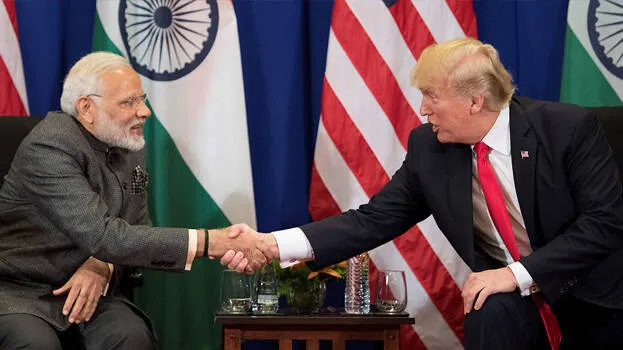

US President Donald Trump has announced that a major trade deal with India will be signed soon. Trump said during an event at the White House that he has a "great deal" with India. A team led by Indian Commerce Minister Piyush Goyal has arrived in the US to negotiate a mini-trade deal before July 8. The 90-day waiver announced by the US for imposing reciprocal tariffs ends on July 9, so an agreement with India will have to be signed before that. The main obstacle to the agreement is the disputes over the import of genetically modified agricultural crops and dairy products.
India will have to pay a 26 percent tariff on exports to the United States if no agreement is reached by the first week of July. India can only take a very cautious stance on the agreement, as the import of genetically modified grains is likely to cause a huge protest from farmers in India. India has not yet signed an agreement in this regard with any foreign country. An agreement between the two countries may not be possible soon if there is no consensus on the agriculture and dairy sectors. If that happens, the Indian team may demand an extension of the exemption for tariff increases, or there is a possibility of an agreement that excludes contentious issues and includes other products.
If that happens, India may be ready to reduce tariffs on industrial products and automobiles in a manner similar to the US-UK agreement. The main demand of the US is that India reduce import tariffs in the agricultural sector. Even if India gives in to this, the number of agricultural products included in it will be very small. The tariffs will be reduced on walnuts, apples, avocados, raisins, olive oil, etc. This will not cause much opposition from Indian farmers. However, India will not be ready to make any changes to the existing system in the dairy sector. The tariffs on rice, wheat, etc. are also unlikely to be reduced. The decision was frozen for 90 days as part of the fact that Trump's tariff war announcement invited huge protests from American citizens.
Chinese products are the most sold in the United States. The increase in the price of Chinese products with Trump's announcements has caused the budget of American families to go out of balance. Moreover, China's retaliation by increasing tariffs on American products has also led to pressure from global giants on the American government. That is what forced the United States to establish a trade agreement with China. Trump is fundamentally a businessman rather than a politician. Therefore, it is unsure whether Trump's tariff war declaration was even a preparation for such agreements with economic powers like China and India with large trade potential. In any case, the new trade agreement should not sacrifice the interests of Indian farmers.